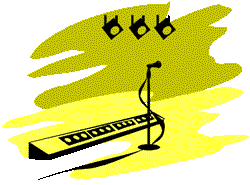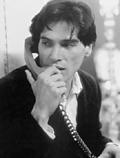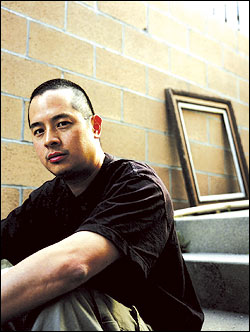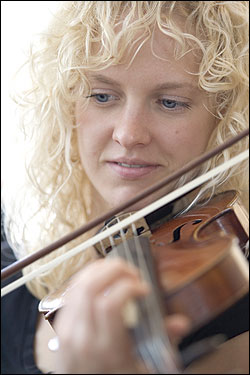MUCH OF THE BEST African pop translates to American audiences as pure, uncomplicated pleasure, and this is especially true of the music emanating from the shores of the Congo River. This area, the southern half of which was known from 1971 to 1997 as Zaire, has nurtured perhaps the best-known concentration of popular musicians on the continent. The 1950s and ’60s saw the rise of enormously popular singers such as Pamelo Mounk’a, Tabu Ley Rochereau, and, most importantly, Franco Luambo Makiadi and his band O.K. Jazz. These musicians worked in a style that is often, if misleadingly, known as “soukous,” a groove-heavy Congolese variant popular in the early ’80s. Franco’s quicksilver guitar picking, propulsive rhythms, and powerful vocals made him the most imitated African popular musician of the 20th century (including American cult favorite Fela Kuti of Nigeria). For many fans, the term “Afropop” is synonymous with the music pioneered by these artists and inherited by their Congolese descendants—such as Zaiko Langa Langa, Kanda Bongo Man, and Loketo. It’s Africa’s homegrown version of (and, occasionally, answer to) American rock ‘n’ roll.
Rumba on the River
by Gary Stewart (Verso Press, $35)
Yet such aural escapism, built on the Afro-rooted rumba rhythms of imported records from Cuba in the late ’40s, didn’t come easily. Anyone with even an inkling of the political unrest that has plagued the African continent as a whole is aware of the upheavals that have been an almost daily part of life in the Congo region since World War II. In direct contrast, Congolese music has been almost defiantly joyful, a reverse-negative of the area’s political situation. On its own, understanding the music takes nothing more than two ears and an appreciation for musical joie de vivre. But an awareness of the social realities behind the music adds another dimension to the sweet guitars and rolling rhythms.
THE STORY OF how this social framework informs the music lies at the heart of Gary Stewart’s Rumba on the River. He details the evolution of both the music and politics of the area and his accessible writing makes Rumba an important addition to the bookshelf of serious students of Afropop, African history, and popular music in general. The book is rigorously researched and dense with facts, which Stewart lays out in a readable style. Of course, unless you’re already intimately familiar with the political realities of sub-Saharan Africa, glossing over names and details and dates is impossible, particularly if French or Lingala (the region’s semiofficial hybrid tongue) aren’t languages that implant themselves immediately into your memory. Consequently the first 90 or so pages of the book are fairly dry. The book picks up speed as Stewart tracks the careers of several of the above-named musicians, most interestingly Kasanda wa Mikalayi, a.k.a. Docteur Nico. Stewart convincingly argues that this guitarist’s long stints with Rochereau have had more impact than any other individual instrumentalist’s in the genre.
Rumba leaves few stones unturned: Stewart discusses everything from the early Congolese musicians’ acquisition of instruments to the formation of nascent performing-rights societies (which track performance royalties when records are bought or played on the radio) to the mass exodus in the ’70s and ’80s of many popular musicians to Paris. He also focuses on the nuts-and-bolts of the musicians’ lives and the ways they’re affected by the social changes surrounding them. There’s a great anecdote early on about Rochereau manning the wheel of a white convertible belonging to his bandleader Joseph Kabasele (whose African Jazz was one of the first great Congolese groups) as Kabasele entertains the revolutionary politician Patrice Lumumba.
Rumba‘s main flaw is that much of the music discussed within is either inaccessible or indifferently packaged. For instance, I own a dozen or so Franco CDs on the French label Sonodisc. Although many are very fine indeed, they all cheat on any information outside of track titles and times. Hopefully, as a result of this book’s appearance, record labels will start reissuing some of the harder-to-find titles. (Rumba does contain a decent discography, which unfortunately omits some of my personal faves—where’s 1984’s stunning Franco/Rochereau collaboration, for instance?) Stern’s, the New York-based world-music distributor, is readying for fall release a four-CD Franco career overview. If that box attracts the kind of attention such a major figure warrants, we could be in for a bounty of goodies from throughout the region’s musical history—which would seal this book’s already considerable triumph.







